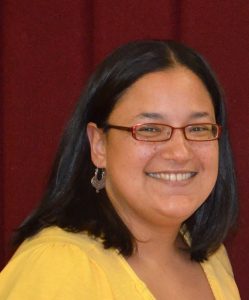
TUSCALOOSA, Ala. — Martina Thomas, a doctoral student in The University of Alabama’s anthropology department, was awarded a $16,000 Dissertation Improvement Grant from the National Science Foundation for her work in determining the social factors that influence a person’s knowledge and behavior regarding HIV risk.
She was chosen from 218 applicants nationwide. According to the NSF, fewer than 15 percent of students were awarded the grant this year.
Thomas’s project, “An Anthropological Study of the Social Ecology of Health Knowledge and Risk,” focuses on social ecological influences contributing to HIV/AIDS risk knowledge and behavior among African-American adolescent female teens in Tuscaloosa.
She developed the idea for the project while conducting research for her master’s degree in Mobile where she studied the perceptions of body image among African-American women and their daughters. She found many of the people with whom she spoke held a misconception about the disease.
“One of the things that influenced me was a couple of the mothers stating that they know who has HIV by the way they look,” Thomas said.
She indicated this was particularly disconcerting to her. With today’s antiretroviral treatments, people who suffer from HIV/AIDS look, she said, “perfectly normal.”
Now, Thomas plans to study how these perceptions affect the risk of African-American adolescent females in coming into contact with the disease.
She hopes that besides a scholarly application, her work will show the ways in which members of a community are more at risk or more protected against the disease by their social ecology. This is a more optimistic view than most HIV/AIDS studies take, which often only examine the disadvantage that is presented, she said.
Dr. Jason DeCaro, an associate professor of anthropology, has mentored Thomas as a graduate student since 2008. DeCaro said he was struck by Thomas’s deep motivation to pursue theoretically sophisticated projects with meaningful applied implications.
“She aims not only to advance scholarship in our discipline—which she will do—but also advance social justice and public health,” DeCaro said.
The anthropology department is part of UA’s College of Arts and Sciences, the University’s largest division and the largest liberal arts college in the state. Students from the College have won numerous national awards including Rhodes Scholarships, Goldwater Scholarships and memberships on the USA Today Academic All American Team.
Contact
Kelli Wright, communications specialist, College of Arts and Sciences, 205/348-8539, kelli.h.wright@ua.edu